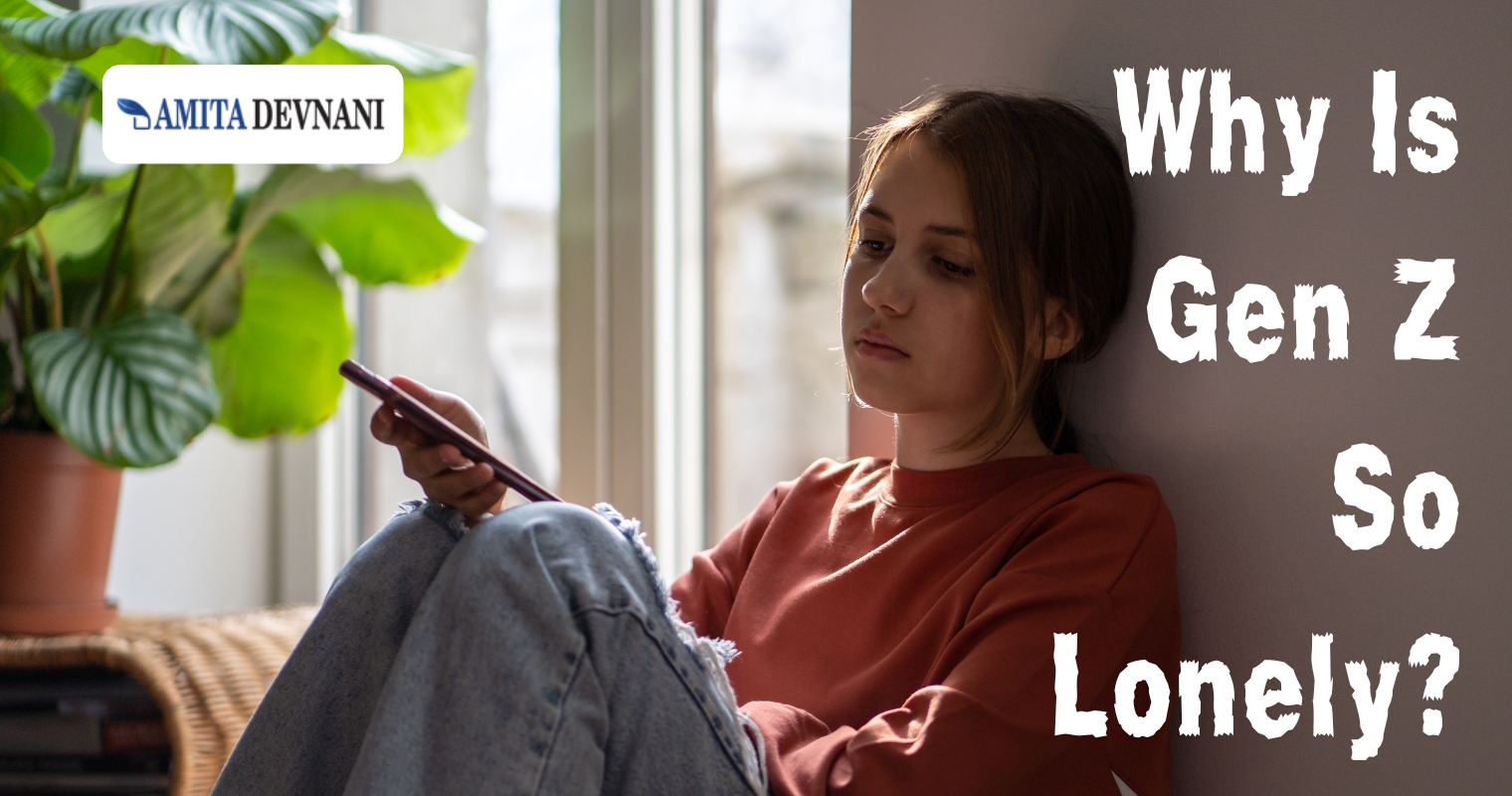- Mon-Sat 11:00 AM - 6:00 PM
- +91 91510 06808

April 16, 2025
Gen Z (born 1997–2012) is super connected online, with phones, social media and apps all the time. But here’s the thing, many feel super lonely. Studies say 73% of Gen Z feel alone sometimes or always, more than any other group. But me being psychologist in gurgaon want to understand why this is happening and how to help. Let’s break it down in simple words, look at why Gen Z feels this way, and answer some common questions they have.
Even with all the tech, Gen Z is struggling to feel connected. Here’s why:
Apps like Instagram and TikTok show perfect lives - cool trips, fancy clothes, happy vibes. This makes Gen Z feel like they’re not good enough. Spending hours scrolling can make you feel left out or alone. About 10% of Gen Z say social media stress makes them lonely.
Chatting online is easy, but meeting in person is harder now. The pandemic kept people apart, and many Gen Zers missed out on making friends during school or college. Plus, places like cafes or parks where people used to hang out are less common or too expensive. Around 44% of Gen Z say they feel lonely even in a crowd.
Lots of Gen Z grew up with smaller families or single parents. This can feel isolating, especially if there’s no one to talk to at home. Also, there’s pressure to do well in school or get a great job, leaving less time for fun or friends. About 56% felt lonely as kids, way more than older generations.
Feeling lonely can make you sad or anxious, and those feelings can make you lonelier. Only 45% of Gen Z say their mental health is good. Many feel stressed about the future, like jobs or money, and 91% deal with things like low energy or sadness.
Texting or DMs aren’t the same as talking face-to-face. Online chats can feel empty, and many Gen Zers don’t know how to make deep friendships in real life. Over half say they feel lonely because they don’t have enough emotional support.
Loneliness isn’t just feeling sad—it can hurt your health, like causing bad sleep or stress. It also affects school or work. For example, 75% of Gen Z have quit jobs because of mental health, and 14% feel totally disconnected at college. If this keeps up, it could make life harder for everyone.
Good news, you can do things to feel better! Here are some easy ideas:
Mix Online and Real Life: Take a break from social media (maybe an hour a day) and meet friends for chai or a walk. Join a hobby group, like dance or gaming.
Make Real Friends: Try small steps, like chatting with someone at school or joining a club. Hobbies help—32% of Gen Z say they feel better when they do fun activities.
Talk to Someone: If you’re feeling low, therapy or counseling can help. Only 9% of Gen Z try it, but it’s okay to ask for support.
Create Cool Spaces: Schools or brands can make events where everyone feels included. Think fun meetups or community projects.
Stay Close to Family: Call your parents or siblings regularly. Even small chats can make you feel less alone.
Here are some questions Gen Z often asks about loneliness, with simple answers to help.
Being around people doesn’t always mean you feel connected. If talks stay surface-level or you’re comparing yourself online, you might feel empty. Try deeper chats with a friend or joining a group you like.
It can. Scrolling a lot can make you feel worse because you compare or see fake happy lives. But if you use it to plan real meetups, it’s okay. Try cutting screen time to 1-2 hours a day.
Start small, say hi to someone at school or join a hobby group, like art or sports. Online groups can lead to real-life friends too. Practice talking to people, like at a shop or bus stop.
Not all, but a lot do, 80% of Gen Z felt lonely last year. It’s super common, so you’re not weird. Talking to friends about it can make you feel less alone.
Lots of people feel shy, 58% of Gen Z do. Try telling one close friend or family member how you feel. You can also join online groups where no one knows you to talk it out.
Gen Z’s loneliness comes from social media, less real-life time, family changes, mental health and too much tech. But we can fix it by making real connections, taking breaks from screens, and talking openly. Here, we’re all about helping you feel stronger and happier. Share your story in the comments or connect with us to build a more connected world!
Also Read - How to Overcome Anxiety: 5 Practical Tips from a Gurgaon Psychologist